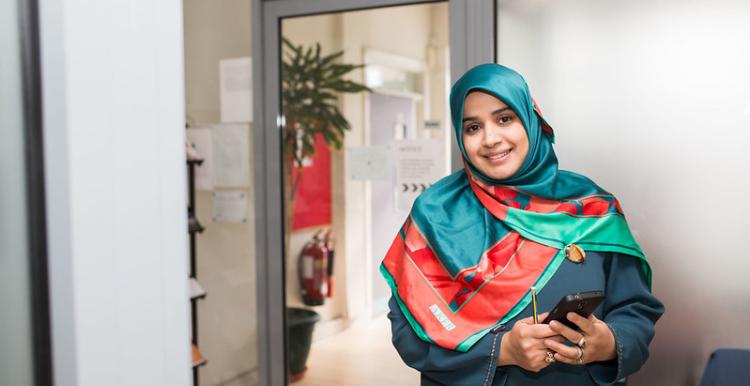How Deaf friendly is your dental surgery?

Healthwatch Wokingham Borough has been working with Deaf Positives Action to find out whether dental surgeries are meeting the needs of people from the Deaf community.
Mark’s experience
Mark Hooper, who is Deaf, carried out a mystery shopper exercise at 10 local dentists to find out how easy it was to access appointments and facilities as a Deaf person. This is what he found:
“I knew from my own personal experience that accessing health services can be a challenge. Although I felt nervous, as communicating with new people is sometimes quite difficult as a Deaf person, I still had high expectations. I thought that apart from the odd blip, it would still be an easy experience.
“To be honest, nothing about the visits was easy. Every step was frustrating and stressful, from asking for a registration form, requesting a British Sign Language (BSL) interpreter, to aftercare help. Out of all the dentists that I visited only two of them made an effort to improve my experience. This was simply by being friendly, showing patience and helping to book an interpreter without any fuss.”
Five ways dentists can make things easier for Deaf patients
With more than 11 million people in the UK living with some form of hearing loss, it’s important that dental services understand people’s needs.
Mark suggests five ways that dental surgeries should improve to help make a trip to the dentist easier for Deaf people:
-
Deaf awareness training for staff
“Basic Deaf awareness training for dental staff would be a great start. By understanding Deaf people and their needs, staff would be able to build better relationships with their patients. If staff are confident about communicating with Deaf people, they may feel more relaxed. Every patient wants to be greeted by relaxed and welcoming staff, Deaf people are no different.”
-
Provide information and support that Deaf patients understand
“Under the Accessible Information Standard (AIS), dental surgeries that provide NHS services must ensure that people who are Deaf are provided with information in a format that makes sense to them. This also applies to hearing parents that have Deaf children or Deaf parents with hearing children.
“Every Deaf person has their own individual needs. Some Deaf people will need a registered BSL interpreter; others may rely on lip reading instead. The important thing is that the dentist has a duty to find out what needs a patient has and to make sure support is provided.
“It’s unprofessional, but sometimes dental surgeries will complain about the cost of an interpreter to the patient. Unsurprisingly many Deaf patients do not return, which may lead to tooth decay and neglect, resulting in additional costs.”
-
Advances in technology
“There are still barriers to relying on remote interpreting services, for example sometimes the Wi-Fi connection can be poor. Online interpreting services should not replace face-to-face interaction, however, it can be useful in an emergency or to book appointments. For example if I wanted to book an appointment for my son but the receptionist assumed the appointment was for me, online BSL services would help to clear this up.
“Being able to make appointments and get reminders online or by text can also be really helpful.”
-
Understanding the risks
“The dental services I visited gave me information in a written format. For some Deaf people written English is not easy to understand, as their first language is BSL. There is a risk that the patient won’t understand what they are signing, especially when it is about agreeing to treatment or acknowledging complications.
“Aftercare was another issue. Some of the dentists gave me a card with a date and time written on it, but it didn’t tell me what the follow up appointment was for or why I needed it.”
-
Making it easier to feedback
"It isn’t widely known, but patients can complain about a bad experience to the Independent Complaints Advocacy Service (ICAS). In line with the Accessible Information Standard (AIS), Deaf people should have access to an accessible complaints policy. However, another problem is that complaints usually have to be made in writing, and even ICAS still requires this, which again is not always possible for people whose first language is BSL. Dental surgeries could make this easier by having information available in an easy read format.
"Find out more about how using an in-vision signer can help Deaf people access information regarding the complaints process."


